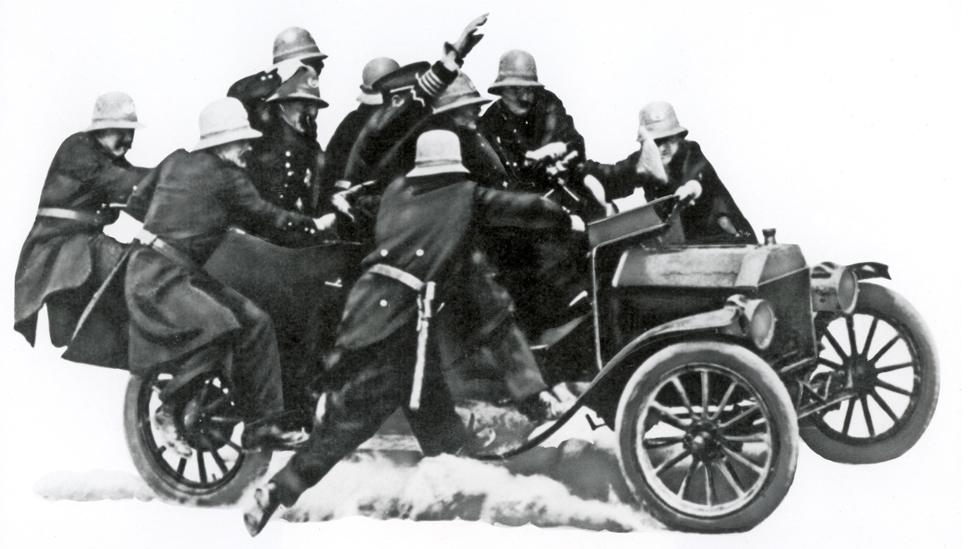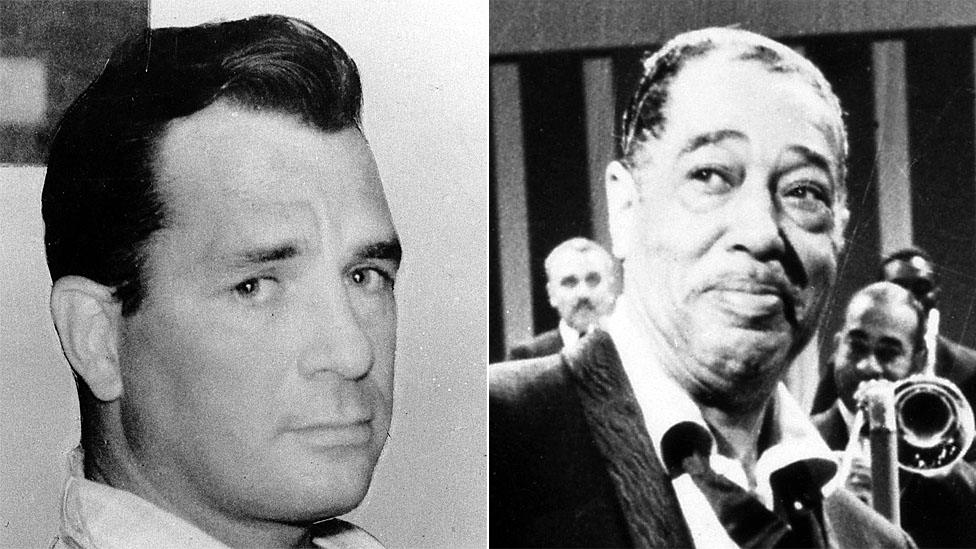The Vocabularist: How 'copout' became a posh phrase
- Published

The Bank of England should produce an impartial view of the consequences of Brexit and not "cop out" with a statement that the prospects are uncertain, a Financial Times columnist recently said. The phrase's meaning has changed, writes Trevor Timpson.
Cop-out has come to mean an evasion, an escape from facing up to something, but like many slang words it has an untidy history.
It first appeared some 500 years ago in the Scots phrase "play cop out" where cop was equivalent to cup, meaning "playing empty the cup" or, frankly, boozing.
But the meaning of cop which has become dominant is to seize or grab, recorded since the 18th Century and maybe a northern English version of "cap" which is recorded once or twice before that. "Grab" is probably the origin of copper and cop meaning a policeman, both dating from the mid-19th Century.
Its own origin may be the Dutch verb "kapen" or the old French verb "caper", perhaps with the Latin capio, "take hold of" lurking in their ancestry.
But the fact is, cop is a handy, punchy little sound and could mean whatever suited the user. Slang dictionaries from the 1940s on show that cop-out could mean a chance meeting, to confess, to inform, get into trouble, be defeated, and even "go to sleep"

Jack Kerouac used "cop-out" in its modern sense; Duke Ellington wrote that he would sometimes cop out until he found "my own musical self breaking through"
All the same, we can get a general notion that "cop out" could mean "grab a way out" and so escape or evade.
The bohemian writings of Jack Kerouac show the modern meaning taking shape. In his 1958 novella the Subterraneans, Kerouac wrote: "So I cop out, from the lot, from life, all of it, go to sleep in the bedroom."
It was a popular phrase in jazz circles. Duke Ellington recorded a number called Cop-out in 1957; in his 1973 autobiography Ellington wrote: "I would cop-out with something appropriate to my limitations… (but would soon) find my musical self breaking through."
By the 1960s copout was becoming a mainstream phrase. Time magazine in April 1966 had a much-cited cover story called Is God Dead? which quoted screenwriter Edward Anhalt as saying: "God is an infantile fantasy, which was necessary when men did not understand what lightning was. God is a cop-out."
In Britain, Kenneth Allsop wrote in 1967: "Drugs… are becoming the sanctioned cop-out of the young disaffiliated."
So "copout" has become first a literary, now almost an establishment phrase. If it had not, it might have gone through six more meanings by now, or been forgotten.

The Vocabularist
Select topic "language" to follow the Vocabularist on the BBC News app

Subscribe to the BBC News Magazine's email newsletter, external to get articles sent to your inbox.